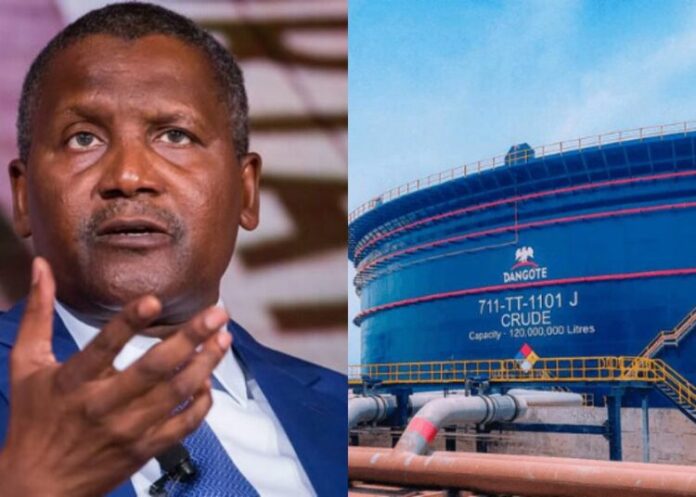Against the backdrop of Nigerian ship owners lamenting that Dangote does not engage the services of their vessels for their crude shipments, African shipowners have risen in defence, stating that the Dangote Petroleum Refinery utilises Angola’s fleet for the shipment of its crude and refined products due to lack of local vessels capacity.

The President of the African Shipowners Association in Nigeria, Ladi Olubowale, has defended Dangote’s decision to rely on Angola-based vessels for logistics as Nigerian ship owners do not have vessels with the capacity for the cargoes.
He explained that unless Nigeria builds its maritime capacity to handle deep-water operations, major opportunities like this will continue to elude the local shipping industry, stressing that the country is losing out on these opportunities.
“So I think the narrative about it is that the Dangote chartered most of the Angolan Fleet because they have vessels to be chartered, and we don’t have. We don’t have a vessel of that size, such as Supermax, Suezmax, or Aframax vessels, among others, that could be used.
“Like the Angolan people, they have vessels to be chartered. If we had it, it would have been an opportunity that Dangote would have used as well.
We are losing a lot of money. The benefits those guys are making, we are losing them. We are not even developing our capacity. For every trade, there are three elements: the trade, the capacity, the currency, and also the cargo,” Olubowale stated.
It would be recalled that the President of the Dangote Group, Aliko Dangote, was reported as raising concerns over rising logistics and regulatory bottlenecks stifling its competitiveness, disclosing that port-related charges have made it more expensive for oil marketers to lift products from its Lekki-based refinery than from offshore storage depots in neighbouring countries like Togo.
The businessman noted that domestic marketers are grappling with multiple charges levied at both the point of loading and discharge when sourcing products from the $20bn refinery, a cost structure not applicable when importing from offshore terminals like the Lomé Floating Storage Terminal.
He said this bottleneck fuels the 69 per cent continued import of refined petroleum products, making Africa a destination for cheap, often toxic petroleum products, many of which are blended to substandard levels that would not be permitted in Europe or North America.
